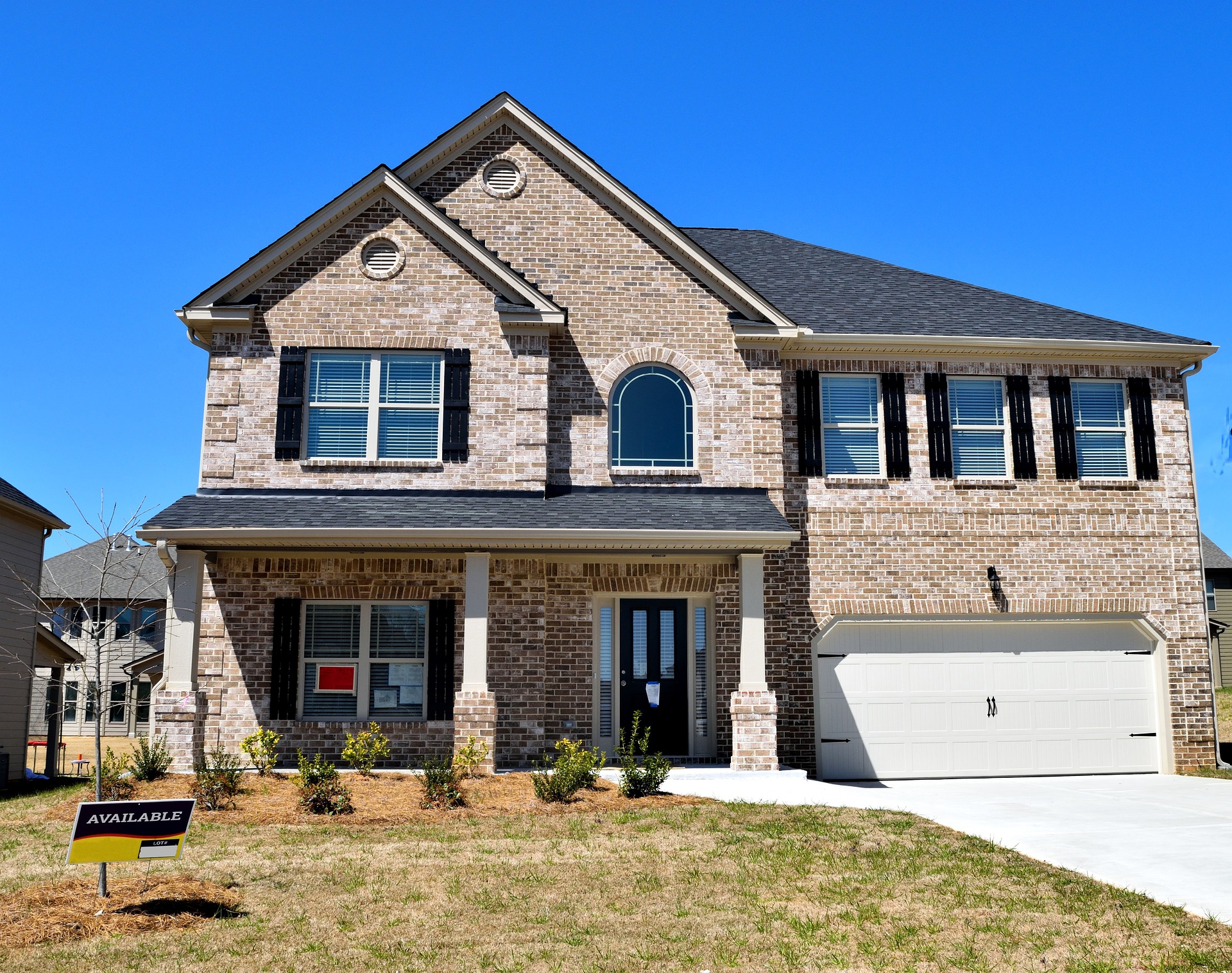Unlock the Secrets to Finding Your Dream Home with these Tips and Expert Strategies
Have you ever been overwhelmed by the numerous choices and decisions required during the search for a new home?
Are you exhausted from constantly searching through property listings, but none of them seem to meet all your requirements? Don’t worry, because we have the perfect solution to your home search problems!
I’m a seasoned Real Estate Expert and I have pooled together some of my pointers and experience to create this comprehensive guide, designed to help you navigate thru the world of home buying so that you can purchase your next home with ease and confidence. I
’m here to give you some tips that will empower you to make the right buying decision for your lifestyle and budget.
Best of all, I have written out my knowledge in an easy-to-follow format that’s accessible to everyone, regardless of their background or experience in the Real Estate Market. So without further ado, let’s dive into the ultimate guide to choosing the perfect home!
Part 1: The Importance of Knowing Your Priorities

Before you start searching for a new home it’s very important to know your priorities. What are the must-have features you cannot do without? Can you make some concessions to allow for other factors? By recognizing your priorities early on, you’ll be more prepared to make smart choices and steer clear of possible problems.
In this section, we’ll explore:
- How to create a detailed wish list of features and amenities
- The benefits of ranking your priorities in order of importance
- Strategies for balancing your “must-haves” and “nice-to-haves”
How to create a detailed wish list of features and amenities
What is the best way to create a detailed wish list of features and amenities? This is the questions that you must be asking yourself.
To start building a detailed wish list for your dream home, consider the essential features you need in your daily life. Start to think about the number of bedrooms and bathrooms that your family needs.
Reflect on the type of kitchen layout that would work best for meal preparation and entertaining. Consider what’s important to you. Do you want an outdoor space, such as a yard or a balcony? How will this impact your lifestyle?
Next, focus your attention on the amenities that would make your life more enjoyable. You might want to live near good schools, parks, or recreational facilities.
Do you want to have access to public transportation, grocery stores, and restaurants? Consider your hobbies and passions, and also the necessities of pets or relatives with unique needs.
Finally, as you compile your list, separate the features and amenities into two categories: must-haves and nice-to-haves. This will help you to focus on what’s most important to you and make it much easier to make decisions when viewing potential homes.
Keep in mind, finding a home that meets every criteria on your list is not likely, so be ready to make concessions on some aspects to obtain the most important ones for you.
The benefits of ranking your priorities in order of importance
Understanding the value of ranking your priorities is crucial when searching for a home. By listing your requirements in order of importance, you can make better decisions when comparing potential homes.
Allowing you to find out what things are really important for you to be happy, while also allowing you to be flexible with less important features.
When you rank your priorities, you gain a clear vision of what truly matters in your new home. This makes it easier to sift through listings and identify the properties that align with your goals.
Furthermore, having a well-organized list ensures that you can communicate effectively with your real estate agent, allowing the Real Estate Agent to work efficiently finding you exactly want you want.
Lastly, prioritizing your needs can save time and reduce stress during the home-buying process.
With a clear understanding of what you value most, you can avoid indecision and focus your efforts on homes that fit your criteria.
This streamlined approach helps you navigate the market with confidence, making the journey to finding your dream home more enjoyable and successful.
Strategies for balancing your “must-haves” and “nice-to-haves”
Let’s examine the distinction between “must-haves” and “nice-to-haves.” Know that “must-haves” are items you truly require in your new house, like the number of bedrooms or making sure the home is near your work place.
“Nice-to-haves” are things that would be great to have but aren’t necessary, like a big backyard or an extra bathroom.
By understanding what the difference is, you can rest assure that it will help you to make better choices when looking at homes.
Remember, to be very realistic about what you can afford. You should examine your budget and determine the amount of cash you can use on a new house.
Now, think about which “must-haves” and “nice-to-haves” are most crucial to your home-buying needs.
You might have to give up some “nice-to-haves” if the cost is over the budget. Keep in mind, you can change or improve your home later if you have more money.
In the end, consider how the features you desire in your new house will impact its value later on.
For example, a house with an updated kitchen or bathroom is often more appealing to future buyers. By considering the potential return on investment, you can make smarter decisions about which features are worth prioritizing in your new home.
Part 2: Location, Location, Location!

The most critical factor in your home-buying decision is the location. A house may be perfect in every other way, but if it’s situated in the wrong neighborhood or far from essential amenities, it may not be the best choice for you.
In this section, we’ll dive into:
- The key factors to consider when assessing a location
- Tips for researching and evaluating neighborhoods
- How to balance your lifestyle needs with your budget constraint
The key factors to consider when assessing a location
One essential factor to think about when looking at a location is the quality of the schools nearby. Even if you don’t have children or your kids are grown, having good schools close by can boost the value of your home. People are often willing to pay more for houses in great school districts.
Therefore make sure that when you’re checking out a location, be sure to look at the nearby schools and their ratings. Not only will this benefit your family, but it will also make your home more attractive to future buyers.
Another critical aspect to consider when evaluating a location is the safety of the neighborhood.
The goal is to feel secure in your home and know that your family and belongings are protected. To learn about the safety of a location, you can research crime rates and talk to neighbors or local law enforcement.
Remember that having a safe community is valuable, not just for your peace of mind but also for maintaining the value of your property.
Lastly, think about the convenience of the location. Is the area close to your workplace, shopping centers, and other essential services?
Being close to transportation, healthcare centers, restaurants and fun places can have a big impact on your everyday life.
Consider how the location will impact your daily commute, errands, or your leisure time. By picking a place with both ease and good features, you’ll be putting money into a home that makes you happy and content for a long time.
Tips for researching and evaluating neighborhoods
One thing you want to consider when looking for a new home is getting to know the neighborhood you’re thinking about moving to.
You can start by checking online sources like neighborhood forums, crime statistics, and local news. Talking to residents can also provide valuable insight.
By doing your homework, you’ll be more ready to pick the right neighborhood that matches your way of living.
Another thing you want to do is visit the neighborhood at various times of the day and night. You want to do this on different days of the week. This gives you a better understanding of the area and surrounding atmosphere.
For example, a quiet street during the day might be busy and noisy at night. This knowledge can assist you in determining if a neighborhood suits you and your family well.
How to balance your lifestyle needs with your budget constraint
Knowing your budget and understanding your lifestyle needs are essential when searching for your dream home.
By having a clear understanding of what your financial limits are, you can focus on finding a home that meets the most important requirements without breaking your budget.
You must make sure you balance yourself between your desires and your actual budget. This will help you to make the right financial decisions when it comes to how much home you actually can afford.
When creating your home wish list, prioritize the features that are most essential to your daily life. By identifying your “must-haves,” you can allocate your budget to what truly matters to you.
This approach allows you to concentrate on the aspects that will significantly impact your happiness and well-being, while also being open to flexibility with less important features.
Remember, a home is more than just a place to live; it’s one of the biggest financial decisions you will make.
By making smart choices that weigh your lifestyle needs against your budget limits, you’ll discover a home that provides the ideal mix of comfort, convenience, and financial security.
Take the time to analyze your priorities and make informed choices – this strategy will lead to a home that brings joy and satisfaction for years to come.
Part 3: The Art of Negotiating a Great Deal

Now that you have a clear idea of your priorities and the perfect location, it’s time to master the art of negotiation. With the right skills and knowledge, you can secure the best possible deal on your dream home.
In this section, we’ll reveal:
- Proven negotiation strategies and techniques
- The importance of being prepared and well-informed
- How to identify and capitalize on opportunities for a better deal
Proven negotiation strategies and techniques
With a level head, you’ll make sound decisions and maintain control of the negotiation process. Remember, you hold the power to influence the outcome, so stay confident and focused.
Another tactic you can use is thorough research on the property and local market. Armed with this knowledge, you’ll gain an advantage when discussing the home’s price, as you can reference comparable properties and their selling prices.
The goal is to try and position yourself in the negotiation to create a possible win situation for the Seller but at the same time get either price or terms out of it.
If you can create a win situation for the Seller it can lead to a more favorable outcome for you.
Finally, make the first offer! Say it with me! Make the first offer! Though it might seem intimidating, an offer that is put together correctly can set the tone for the entire negotiation process.
You establish a starting point for the offer, which allows you to get a feel of the seller’s flexibility.
Remember, being proactive in the negotiation process increases your chances of securing an excellent deal on your dream home.
The importance of being prepared and well-informed
Being ready and knowledgeable when starting the home-buying process is important for your success. When you begin to understand what to expect, you can then make a wiser choice and feel more confident throughout the buying experience.
This will help limit potential issues with buying a property and help you to positions yourself to take advantage of opportunities that might come your way.
When you conduct research about the market, it will help you gain some insightful information about the market, which in terms helps you to communicate the things you expect, need and want with your Real Estate Agent.
This understanding paves the way for a smoother home-buying process and helps you find the perfect home. Doing these few things will help to insure that your agent finds the exact idea home for you.
Being informed about market trends, prices, and local factors gives you a significant edge when it’s time to negotiate with the seller.
So, put in the effort to study, attend workshops, or ask industry professionals for advice to increase your knowledge.
As you learn more about the home-buying process, you’ll see that making solid decisions that match your goals becomes easier.
Keep in mind, the more you understand the market, the better chances you will have in finding your dream home.
How to identify and capitalize on opportunities for a better deal
When you’re on the hunt for a new home, recognizing and seizing opportunities for a better deal is crucial. Keep an eye out for motivated sellers who may be more willing to negotiate a lower price.
For instance, look for properties that have been on the market for an extended period or have had multiple price reductions.
By identifying these situations, you can position yourself to make a strong offer that could save you money.
As you search for your dream home, don’t forget to explore various financing options. You may be eligible for special loan programs or incentives that can help you secure a better mortgage rate or reduce your down payment.
Consult with a mortgage professional to uncover all the options available to you. By taking advantage of these programs, you’ll be able to get the most out of your budget and afford a better home.
Lastly, consider working with an experienced Real Estate Agent who can help you identify and take advantage of opportunities for a better deal.
A skilled agent will have the expertise to negotiate on your behalf and may have insider knowledge of upcoming listings or motivated sellers.
By partnering with a knowledgeable professional, you can ensure that you’re making the best possible decisions and maximizing your chances of securing the ideal home at a great price.
Part 4: Financing Your Dream Home

The financial aspect of purchasing a home can be daunting, but it doesn’t have to be. With the right guidance and resources, you can confidently navigate the world of mortgages, down payments, and interest rates.
In this section, we’ll cover:
- The different types of home loans available
- Strategies for securing the best mortgage rates
- Tips for managing your finances during and after the home-buying process
The different types of home loans available
Exploring the variety of home loan options is vital when it comes to finding the best mortgage for your specific needs.
Fixed-rate mortgages, for example, give you steady monthly payments because the interest rate stays the same for the whole loan.
This kind of loan helps you know what to expect, which makes planning your money easier. You’ll appreciate the stability this type of loan provides, making it easier to plan your finances.
Adjustable-rate mortgages (ARMs) come with an interest rate that changes over time, often starting with a lower rate than a fixed-rate mortgage.
After an initial fixed period, the rate adjusts periodically based on market conditions. While ARMs can be appealing due to the lower initial rate, you should be prepared for potential fluctuations in your monthly payments.
Another option worth considering is government-backed loans, like FHA, VA, or USDA loans. These types of loans often provide more flexible qualification requirements and may offer lower down payment options.
FHA loans, for example, cater to first-time homebuyers and those with lower credit scores, while VA loans are designed for eligible military service members and USDA loans target rural areas.
By exploring all these options, you can find the best loan to suit your unique financial situation and home-buying goals.
Strategies for securing the best mortgage rates
Getting the best mortgage rates could help you save a significant amount of money throughout your loan’s duration. So, it’s essential to take the time to research and compare different lenders.
You’ll want to shop around and obtain multiple quotes from various mortgage providers, as this will give you a better understanding of your options.
Remember, it’s not only about the rate; you have to take into account other aspects like loan terms, fees, and the mortgage company’s customer service as well.
A solid credit score is a powerful tool when it comes to negotiating better mortgage rates. Boost your credit by making timely bill payments, lowering your debt, and examining your credit report for any mistakes.
By taking steps to improve your credit, you show lenders that you’re a reliable borrower, and they may be more willing to offer you competitive rates.
Lastly, don’t hesitate to negotiate with lenders. They’re often more flexible than you might think, so it’s worth discussing your options with them.
If you’ve received a lower quote from another lender, mention it and see if they’re willing to match or beat it.
Being proactive and assertive in your negotiations can help you secure the most favorable mortgage rate, ultimately saving you money in the long run.
Tips for managing your finances during and after the home-buying process
As you begin the home-buying process, it’s essential to establish a financial plan that guides you along the way.
Start by creating a budget that covers not only the cost of the house but also all the extra expenses associated with the process.
You’ll find that managing your finances becomes more manageable when you have a clear picture of where your money is going.
With this detailed budget, you’ll confidently navigate the expenses of buying a home and maintain control over your financial health.
Another essential step is to establish an emergency fund. Life can be unpredictable, and unexpected expenses may arise.
By having a financial safety net, you can face these challenges without jeopardizing your home investment.
Remember, this emergency fund should be separate from your regular savings, so you can dip into it when necessary without affecting other financial goals.
Building a solid financial foundation will provide you with peace of mind throughout the home-buying process and beyond.
Lastly, think about your long-term financial plan. Buying a home is a significant investment that impacts your finances for years to come.
Consider how your mortgage payments, property taxes, and maintenance costs fit into your overall financial strategy.
Don’t forget to factor in other life goals, such as retirement, education, or travel. By taking a holistic approach to your financial planning, you’ll ensure that your new home investment supports your broader life goals, leading to a more prosperous and fulfilling future.
Conclusion
Equipped with the expert tactics and knowledge presented in this comprehensive guide, you’ll be on the right path to discovering and acquiring the ideal home that suits both your lifestyle and budget.
Keep in mind that knowledge is power – and with this guide at your disposal, you’ll possess the tools and assurance required to transform your dream home into a reality.
Are you prepared to start the adventure of a lifetime? Let’s embark on our quest to uncover your perfect home and open the door to a more vibrant, joyful future!
If you’re looking to buy or sell a home in the Dallas-Ft Worth area, don’t hesitate to contact me for assistance.

